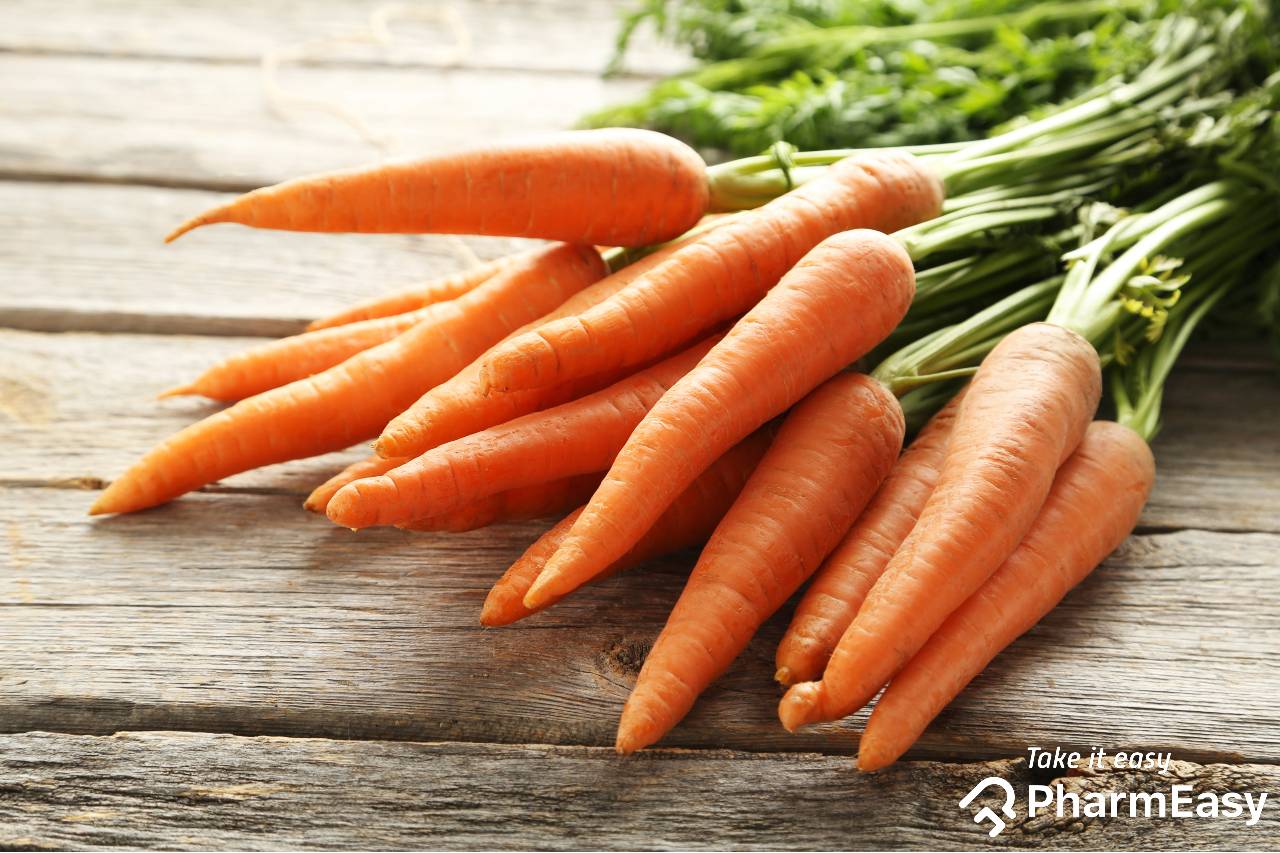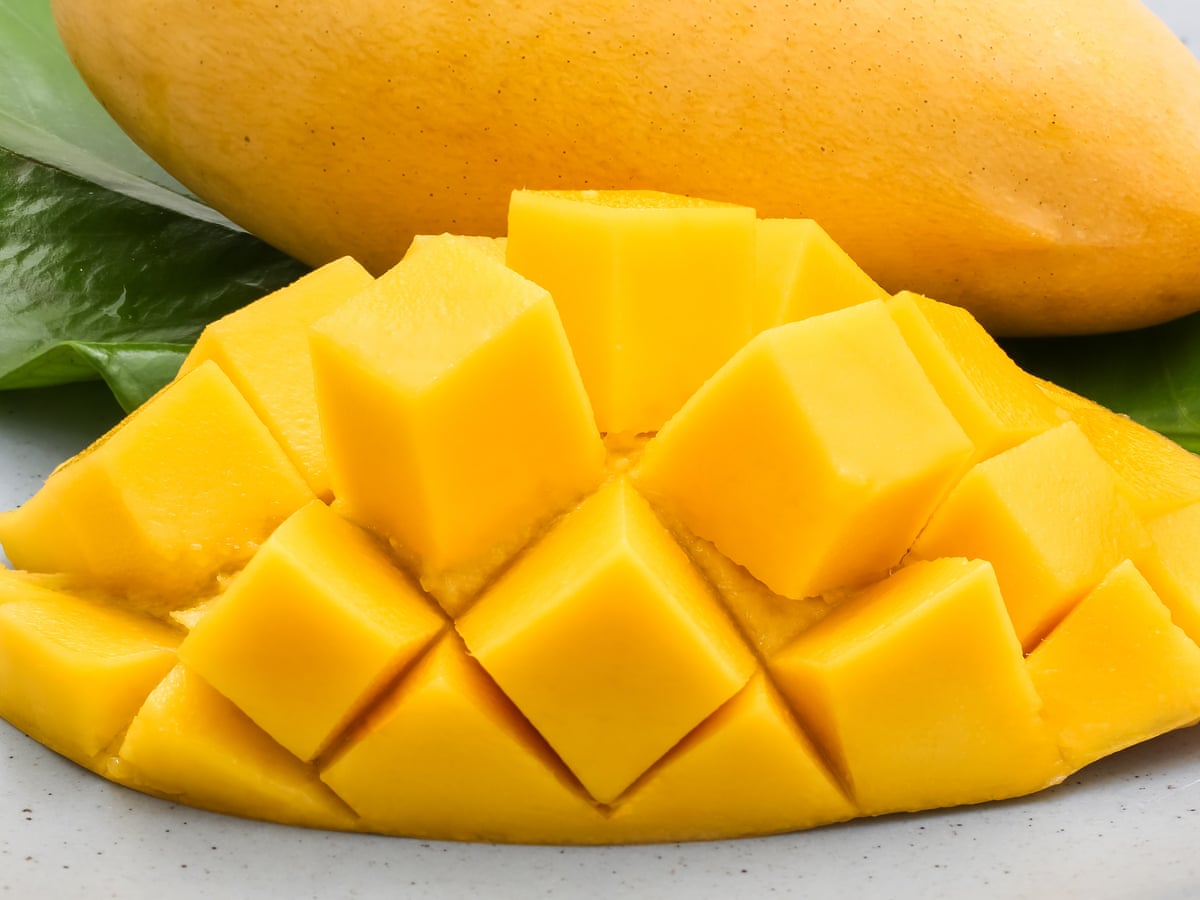Appendicitis is a condition that requires prompt medical attention and often involves surgery to remove the inflamed appendix. During the recovery period, it is crucial to consume foods that support tissue healing and boost immune function. Vitamin A plays a significant role in both these processes, making it an essential nutrient to include in the diet. In this article, we will explore the top five foods rich in vitamin A that can aid in tissue healing and immune support during appendicitis.
1, Carrots.
Carrots are highly nutritious vegetables that offer numerous health benefits. They are particularly known for being an excellent source of vitamin A. Vitamin A is a fat-soluble vitamin that plays a crucial role in maintaining healthy vision, supporting the immune system, and promoting cell growth and development.
Carrots contain a compound called beta-carotene, which is a type of carotenoid pigment responsible for their vibrant orange color. Beta-carotene acts as a precursor to vitamin A, meaning that it can be converted by the body into active vitamin A when needed. This conversion occurs in the small intestine and liver, ensuring that the body has a steady supply of vitamin A.
Having sufficient vitamin A is essential for good vision. It plays a key role in the functioning of the retina, a light-sensitive tissue located at the back of the eye. Vitamin A helps to convert light into electrical signals that are transmitted to the brain, enabling us to see properly. Consuming an adequate amount of vitamin A, such as through carrots, can help maintain healthy vision and reduce the risk of conditions like night blindness and age-related macular degeneration.
Moreover, carrots are rich in antioxidants, which are compounds that help protect the body's cells from damage caused by harmful molecules called free radicals. The antioxidants found in carrots, including beta-carotene, lutein, and zeaxanthin, have been associated with various health benefits. They help neutralize free radicals and reduce oxidative stress, which is linked to chronic diseases like heart disease, certain cancers, and neurodegenerative disorders.
In addition to vitamin A and antioxidants, carrots provide other important nutrients. They are a good source of vitamin K, which is involved in blood clotting and bone health. Carrots also contain vitamin C, an immune-boosting vitamin that supports collagen production and acts as an antioxidant. Additionally, they are a source of potassium, a mineral essential for maintaining healthy blood pressure and fluid balance, and dietary fiber, which aids in digestion and promotes satiety.
Including carrots in your diet can be a simple and delicious way to boost your intake of important nutrients. They can be enjoyed in various forms, such as raw, steamed, roasted, or incorporated into dishes like salads, soups, stews, and stir-fries. To maximize the absorption of beta-carotene, it's recommended to consume carrots with a source of dietary fat, such as adding a drizzle of olive oil or enjoying them alongside a meal that contains some healthy fats.
Overall, carrots are a nutritious vegetable that provides vitamin A, antioxidants, and other essential nutrients. Regularly incorporating carrots into your diet can support eye health, promote immune function, and contribute to overall well-being.
2, Sweet Potatoes.
Sweet potatoes are indeed an excellent source of vitamin A, just like carrots. They contain beta-carotene, which is converted by the body into vitamin A as needed. This nutrient is essential for maintaining healthy vision, supporting the immune system, and promoting cell growth and development.
In addition to being rich in vitamin A, sweet potatoes offer a range of other health benefits. They are high in dietary fiber, which is beneficial for digestive health. Fiber adds bulk to the diet, aiding in regular bowel movements and preventing constipation. It also supports the growth of beneficial bacteria in the gut, promoting a healthy digestive system.
Sweet potatoes are a complex carbohydrate with a lower glycemic index compared to regular potatoes. This means they cause a slower and steadier rise in blood sugar levels, making them a favorable choice for individuals managing their blood sugar levels or those seeking sustained energy.
These root vegetables are also a good source of vitamins and minerals. They contain vitamin C, which acts as an antioxidant and supports immune function. Additionally, sweet potatoes provide potassium, which is crucial for maintaining healthy blood pressure and electrolyte balance. They also contain vitamin B6, which plays a role in brain development and function.
The vibrant orange color of sweet potatoes indicates the presence of antioxidants, particularly beta-carotene. Antioxidants help protect cells from damage caused by free radicals and may contribute to reducing the risk of chronic diseases such as heart disease and certain cancers.
There are various ways to enjoy sweet potatoes in your diet. They can be baked, boiled, steamed, or roasted. You can incorporate them into dishes like soups, stews, casseroles, or enjoy them as a side dish or even in desserts. When preparing sweet potatoes, it's beneficial to keep the skin on, as it contains additional fiber and nutrients.
In summary, sweet potatoes are a nutritious and versatile food. They are an excellent source of vitamin A, thanks to their beta-carotene content. They also provide dietary fiber, vitamins, minerals, and antioxidants, contributing to overall digestive health and well-being. Adding sweet potatoes to your meals can be a tasty way to enhance your nutrient intake and support a healthy lifestyle.
3, Spinach.
While spinach is a highly nutritious leafy green vegetable, it's important to note that during appendicitis, dietary recommendations may vary depending on the individual's condition and the advice of their healthcare professional. Appendicitis is a serious medical condition that typically requires medical intervention, such as surgery, to remove the inflamed appendix. It is crucial to follow medical advice and adhere to any specific dietary guidelines provided.
Generally speaking, spinach is indeed a nutritious vegetable with various health benefits. It is known for being rich in vitamins, minerals, and antioxidants that can support overall health and well-being. Spinach is an excellent source of vitamin A, which plays a vital role in maintaining healthy vision, supporting the immune system, and promoting cell growth and development.
In addition to vitamin A, spinach contains other essential nutrients. It is a good source of vitamin C, which supports immune function, collagen production, and acts as an antioxidant. Spinach also provides vitamin K, which is important for blood clotting and bone health. It is rich in minerals like potassium, magnesium, and iron, which are necessary for various bodily functions.
Spinach is also known for its antioxidant properties. It contains various antioxidants, such as beta-carotene, lutein, and zeaxanthin, which help protect cells from damage caused by free radicals. Antioxidants contribute to overall health and may help reduce the risk of chronic diseases.
However, during appendicitis or any other medical condition, it is crucial to follow the advice of healthcare professionals regarding dietary recommendations. Appendicitis typically requires treatment that may include fasting or consuming specific foods or liquids to reduce the strain on the appendix. Surgery is often performed to remove the inflamed appendix, and the recovery period may involve a specific post-operative diet.
If you or someone you know is experiencing appendicitis, it is essential to seek medical attention promptly. Follow the advice and instructions of healthcare professionals regarding dietary restrictions, including whether or not spinach or other specific foods are appropriate during the recovery process.
4, Mangoes.
Mangoes are not only delicious but also provide a range of health benefits. They are a good source of vitamin A, primarily in the form of beta-carotene. Vitamin A is essential for maintaining healthy vision, promoting cell growth and development, and supporting immune function.
In addition to vitamin A, mangoes offer an array of other vitamins and minerals. They are rich in vitamin C, which is an important antioxidant that supports immune function and aids in tissue repair. Vitamin C also helps the body absorb iron from plant-based sources, making mangoes a valuable addition to a vegetarian or vegan diet.
Mangoes are also a good source of dietary fiber, which aids in digestion and promotes a healthy gut. They contain both soluble and insoluble fiber, which can contribute to feelings of fullness and support regular bowel movements.
Furthermore, mangoes contain several beneficial compounds and antioxidants, such as polyphenols and flavonoids. These antioxidants help protect the body's cells from damage caused by free radicals, which are unstable molecules that can contribute to chronic diseases and inflammation.
Including mangoes in your diet can certainly contribute to the healing process due to their nutrient profile. They provide essential vitamins and minerals that support tissue repair and immune function. Mangoes can be enjoyed on their own, added to smoothies, used in salads, or incorporated into various dishes for a burst of flavor and nutritional benefits.
It's worth noting that if you have any specific dietary restrictions or medical conditions, it's always a good idea to consult with a healthcare professional or registered dietitian to ensure that mangoes or any other foods are appropriate for your individual needs.
5, Cod Liver Oil.
Cod liver oil is derived from the liver of cod fish and is known for its high content of vitamin A and omega-3 fatty acids. It is considered a potent source of these nutrients, which offer various health benefits.
Vitamin A plays a crucial role in tissue healing and repair. It supports the growth and development of cells and tissues, including those involved in the immune system. Adequate vitamin A intake is essential for maintaining a healthy immune response and promoting proper healing.
Omega-3 fatty acids, specifically eicosapentaenoic acid (EPA) and docosahexaenoic acid (DHA), are known for their anti-inflammatory properties and have been associated with a range of health benefits. They contribute to the proper functioning of the immune system and help regulate inflammation in the body.
While cod liver oil can provide a concentrated dose of vitamin A and omega-3 fatty acids, it's important to consult with your healthcare provider before taking any supplements, especially if you have appendicitis or any other medical condition. Your healthcare provider will be able to assess your individual situation and provide guidance on whether cod liver oil or any other supplements are appropriate for you.
During appendicitis or any medical condition, it's crucial to follow the advice of healthcare professionals, as they will consider factors such as the specific condition, potential interactions with medications, and individual health needs. They can provide personalized recommendations for dietary choices and supplementation, if necessary, to support your recovery and overall well-being.
Incorporating foods rich in vitamin A into your diet can greatly support tissue healing and immune function during the recovery phase of appendicitis. Carrots, sweet potatoes, spinach, mangoes, and cod liver oil are excellent sources of this vital nutrient. These foods not only provide the necessary vitamin A but also offer additional antioxidants, vitamins, and minerals that contribute to overall health and well-being. However, it is always advisable to consult with a healthcare professional for personalized dietary recommendations during appendicitis. By making informed choices and focusing on nutrition, you can optimize your healing process and enhance your immune system's ability to fight off infections.





Comments
Post a Comment